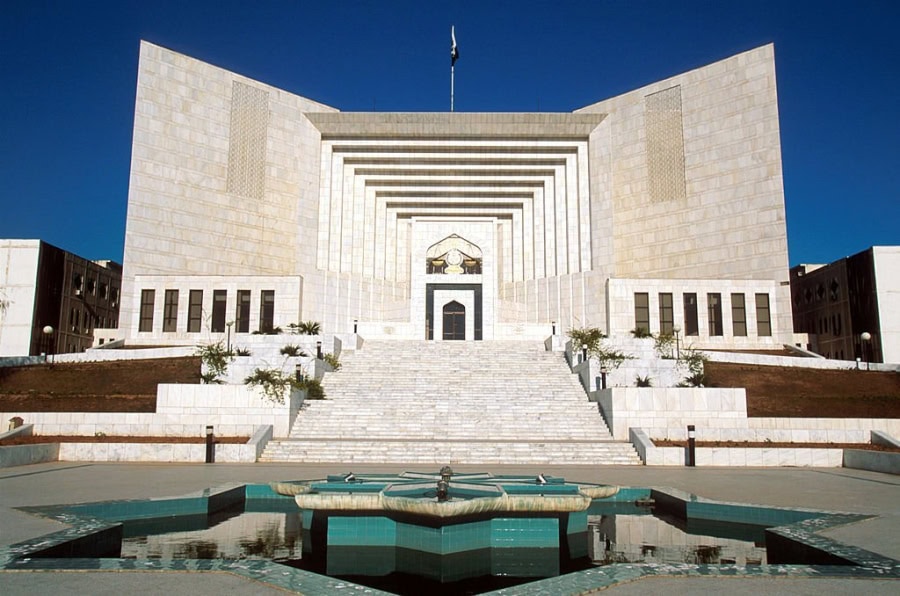Islamabad: The Supreme Court of Pakistan will shortly resume hearing the suo motu notice regarding the delay in the announcement of a date for elections in Punjab and Khyber Pakhtunkhwa.
A nine-member bench of the apex court, headed by Chief Justice Umar Ata Bandial and comprising Justice Ijazul Ahsen, Justice Muneeb Akhtar, Justice Mazhar Ali Naqvi, Justice Muhammad Ali Mazhar, Justice Yahya Khan Afridi, Justice Mansoor Ali Shah, Justice Athar Minallah, and Justice Jamal Khan Mandokhel as its other members will hear the case.
On February 22, Chief Justice of Pakistan (CJP) Umar Ata Bandial took the notice of the apparent delay in the elections in the two provinces where the former ruling party, Pakistan Tehreek-e-Insaf (PTI), dissolved the legislative assemblies in mid-January.
Last hearing
In its last hearing, the Supreme Court issued notices to all major political parties in the suo moto hearing, making it clear that the violation of the Constitution would not be tolerated.
During the hearing, Justice Jamal Khan Mandokel expressed reservations about invoking the suo motu jurisdiction in light of the delay in announcing the election dates for the Punjab and Khyber-Pakhtunkhwa assemblies, saying that it was not “justified.”
Justice Athar Minallah and Justice Mansoor Ali Shah of the Supreme Court raised questions on the dissolution of Punjab and Khyber Pakhtunkhwa assemblies.
Justice Athar Minallah remarked that it is to be seen whether provincial assemblies were dissolved as per the Constitution or not. While Justice Mansoor Ali Shah wondered whether the assemblies can be dissolved on someone’s dictation.
“How can the assemblies be dissolved at the directive of an individual if the representatives are elected for five years,” he noted.
The judge said that the court will also see if the assemblies’ dissolution is constitutionally wrong and if the matter can be resolved through their restoration.
The apex court issued notices to the Election Commission of Pakistan, President Arif Alvi, federal, Punjab and KP governments, members of the Pakistan Democratic Movement, the Supreme Court Bar Association president, the Pakistan Bar Council vice president and others in the case.










